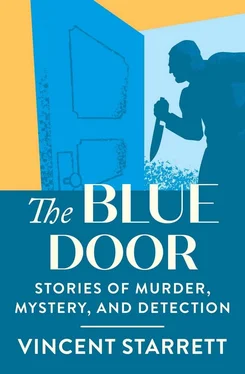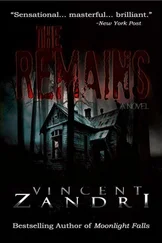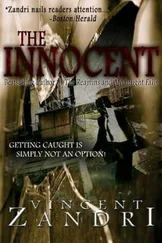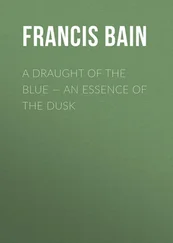Vincent Starrett
The Blue Door
Stories of Murder, Mystery, and Detection

ALL OF THE CHARACTERS AND INCIDENTS IN THIS BOOK ARE FICTITIOUS
For permission to reprint the stories in this collection, I am grateful to the editors of the Pictorial Review, Short Stories, Real Detective Tales , and MIDWEEK, The Chicago Daily News
V. S.
TO
EDWIN BAIRD
EDITOR AND FRIEND
1.
Obliquely returning, at a late hour (or early, as you prefer), from the Sea Lions’ Saturday Nite Frolic, two shirt-fronted gentlemen, who addressed each other as Norway and Pemberton, affectionately linked arms and paraded, somewhat crazily, down the center of the street.
There was no mistaking their condition, and night-roaming taxi drivers, realizing the situation, hailed them hopefully. But the survivors of the recent hilarious celebration shook jovial heads and plodded onward in the Sunday morning silence. At intervals, however, the older of the two men tugged at his companion’s arm, endeavoring to draw him over to the sidewalk.
“Come ’long, Norway,” he urged, a little thickly. “Don’t be a damn’ fool. Let’s get home.”
“Let’s not,” suggested young Mr. Norway, with surprising clarity. He brandished his stick at a leering street lamp and tightened his grasp on the other’s sleeve. “’S the use of going home? There’s nobody there.”
The older man failed to appreciate this flight of logic. “We’ll be pinched, first thing we know,” he complained. “You don’t want to be pinched, do you?”
“Let ’em,” responded Norway, with some irrelevance, and continued his calisthenics with his stick. After a moment he added: “Tell you what let’s do. Let’s get some more Scotch and go to my place. No use going to bed now. Time to get up, Pemberton, ol’ man. Time for breakfas’ pretty soon. Whatcha say? Couple more little drinks, then we’ll call it a night. Gotta get some more Scotch, though. Well, whatcha say?”
The man called Pemberton made a gesture of resignation. “All right,” he agreed, “let’s go to your place, wherever it is. But what’s the sense of drinking all night? Besides, you can’t get anything now. Everything’s closed up—tight.”
“H’m!” said young Mr. Norway scornfully. “I can get it any time I want it. Any time,” he repeated firmly. “Day or night,” he added with conviction. “Know how to get a drink after midnight, Pemberton?”
“How?”
“Ask a cop!”
“You’re drunk as a fool,” said Pemberton.
His companion stood upon his dignity. “Not drunk at all,” he retorted. “But I’m going to be. Know what’m talking about, ol’ man. There’s a cop at the next corner. You’ll see.”
Mr. Pemberton became uneasy. “Good God, Norway,” he protested, “you can’t ask a policeman for liquor! Do you know this man?” His own wits were clearing under the effect of apprehension.
“Don’t know him at all,” said the younger man, “but he’s a cop, ain’t he? An’ all cops know where the liquor is, don’t they? Can’t fool me.”
Mr. Pemberton became more and more perturbed. His perturbation increased as relentlessly they bore down upon the policeman at the corner. He made an effort to stop the headlong progress of his companion, but Norway had already engaged the attention of the patrolman. Mr. Pemberton sighed, and assumed a subservient position in the rear.
“Morning!” observed Norway cheerfully, bracing his feet and slightly rocking.
The bluecoat stared suspiciously.
“Awful sorry to bother you, ol’ man, but we gotta get some liquor. Couple o’ thirsty Sea Lions in need o’ liquor.” He stepped back and cupped his hands to his mouth. “Whoo-o-o Whoo-o-o!” he rumbled, with a sound like a contralto fog siren, and immediately explained, “Sea Lions—see? Y’ain’t a Sea Lion yourself, officer?”
The officer was not. He was deeply interested, however.
“Thirsty, eh?” he countered.
“You bet,” said Norway earnestly. “Wanta get some Scotch. Good Scotch,” he added with great solemnity, “solid wool, eighteen karat. You know? Don’t happen to know a good place, do you?”
Suppressing a smile, the policeman appeared to think deeply. After a moment he replied: “Well, yes, I do know a place not far from here.” His glance took them both in, swiftly and shrewdly; but there seemed no doubt that they were quite innocent of guile. They appeared sincerely to want a drink. Furthermore, they were both already sufficiently liquored not to be likely to remember the incident.
“I’ll tell you what you’ve got to do, boys,” said the policeman. “This is Dearborn Street; I suppose you know that. Well, you go along here, the way you were going, for two blocks, then turn over west one block, then south again. There’s a little street cuts in there, only a couple of blocks long, and in front of one of the houses you’ll find an old cab—the only one left in the world, I guess. An old cab with a tired old horse attached to it. He stands with his head down, all the time, as if he was asleep, which maybe he is, and up on the box there’ll be an old cabby, with his head down, and for all I know maybe he’s asleep, too. Well there you are! All you got to do is get into the cab, then wake up the old cabby and tell him what you want. He’ll take you where you can get it.”
Pemberton stared, amazed at such directions from a policeman. Norway, however, received the nightmarish direction with gratitude and assurance. It was as if he had been given merely a street number and a name. He turned at once.
“Many thanks, ol’ man,” he nodded. “Knew you could fix us up. Well, many thanks!” And the hand that had been fumbling the change in his pocket came out with a reckless handful. It was the policeman’s turn to thank his interrogators.
“There!” said Norway triumphantly, as they moved away. “What’d I tell you? Any time you want a drink in this town—just ask a cop!”
Pemberton breathed a long sigh of relief. “By Golly, I need one,” he remarked plaintively.
“Now,” continued the younger man, as briskly as ever, “what’d that cop tell us to do?”
“I know the street,” answered his companion. “It must be Baker Street. Let’s get there in a hurry. I’m sober as a judge.”
He led the other to the sidewalk, this time without demur, and they continued their advance for two blocks, as directed, before turning to the west. At Baker Street they halted and looked quickly at each other. Suddenly both were smiling.
For two squares to the southward the little thoroughfare extended, lined on either side with tall residence buildings; and before the second house from the corner stood a tired horse attached to a decrepit cab of World’s Fair vintage—Chicago, 1893. Asleep upon the box sat an ancient cabman.
“Well,” observed Pemberton, “he’s there.”
“Sure he’s there,” said young Mr. Norway in a matter-of-fact tone. “Did you think he wouldn’t be? Any time you want anything in Chicago, ol’ man, just call a cop. Wanta taxi? Call a cop! Wanta cab? Call a cop! Wanta drink? Call a cop! Wanta policeman? Call a cop!”
He bore down upon the antique vehicle and, opening the door, climbed in and sat down. More slowly, Pemberton followed him. Neither horse nor driver stirred. The older man reopened and again closed the door, with some violence. Mr. Norway, a wizard of resource, thrust his stick through the open front window and sharply prodded the cabman with the ferule. “Probably dead,” he observed casually; and then the sleeper stirred and turned upon them.
Читать дальше













